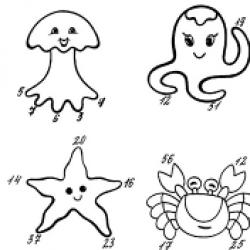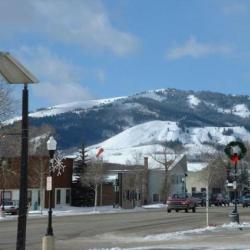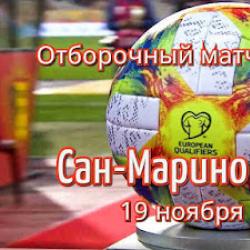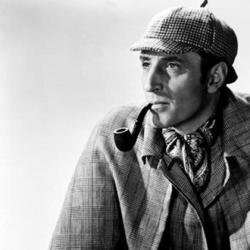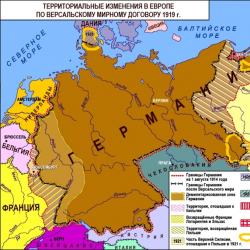The teacher lights the way. A teacher is a candle that shines for others while burning itself out
Essay
« A teacher is a candle that shines for others while burning itself out.”
It all starts from childhood. And childhood with family and school. A family is, first of all, a mother, and a school is, first of all, a teacher.
Teacher is a sacred word.
I'am a teacher. A teacher is not even just a profession. It's a way of life. This is an awareness of enormous responsibility to the state, society, and, above all, to the student. Every day the eyes of my students look at me. The future of Russia sits at the desks in my classes. And this is the future that I and my family will have to live in. And not only the life of the country, but mine too, depends on what these children become.
I am the first teacher. I am the first teacher who enters the life of a child and his family. Parents trust me with the most precious thing they have - their children.
A child is an integral personality, and first of all, it is necessary that the pedagogical process captivates him completely, with all his life aspirations and needs. In this process, the child should experience a feeling of constant enrichment of life, satisfaction of his growing and increasingly diverse cognitive and spiritual needs. Teaching will become the meaning of life for a child if it is controlled from his position, realizing internal readiness for development, independence, self-affirmation, and moral formation.
All my students are so different, each one needs to be seen, each one needs to be reached. Absent-minded, dreamy and trusting, they need help and control from the teacher. We, teachers, must not only convey knowledge, but also be able to awaken a thirst for knowledge in a little person, interest him, and then teach - this is the essence of pedagogical skill.
My task is to help the student find himself, make the first and most important discovery - discover his abilities, and perhaps talent. I understand that this requires knowledge, skills, and pedagogical skill from me. There are many ways to make your lessons interesting and beautiful, but the most important thing on this path, in my opinion, is faith in yourself, faith in your capabilities, faith in your great destiny.
What would I like to see in my students? Free thinking, tolerance, the ability to constructively solve problems, the ability to express oneself and many other very important qualities. The main thing is for each of them to become a bright individual, to become a personality. If my kids can do this, I’m happy.
It turns out that for me being a teacher is important, expensive, and I can’t do without it. Being a teacher for me means being happy. I am happy myself and I try to bring happiness to the people around me who are dear to me, my students.
I probably can’t draw the line anymore where my work ends and my personal life begins. Undoubtedly, my path, calling and leading to happiness, is pedagogical work. I don't work teacher, I am a teacher. I like to be teacher. Many years ago I made my choice, and I still think it’s right.
Everything has its origins. I was once taught too. It was my beloved teachers who revealed to me that friendly participation, lively, confidential communication with children is perhaps one of the main conditions for success and satisfaction from one’s work. A teacher should not “work with children,” but live with them, share joys and sorrows, ups and downs, without allowing falsehood in relationships.
And I want to end my thoughts with a wise thought: “A candle will not lose anything if you light another candle from its flame.”
A teacher is a candle that shines for others while burning itself out.
(Giovanni Ruffini)
Already from school, I clearly knew that I would be a chemistry teacher. I saw how interesting and smart people teachers are. You could always talk to them on any topic. They taught the wisdom of life: to be sociable, to complete things, to be responsible for yourself and your younger ones. In high school, I liked those lessons in which ready-made knowledge was not given, but where you had to work extra hard, find the answer yourself, and gain knowledge. It was difficult and unusual. But it was all the more interesting to get to know yourself, your capabilities and strengths. All this strengthened my desire to go to a pedagogical institute. In 1979 I entered the Faculty of Biology and Chemistry of the Tomsk State Pedagogical Institute, from which I graduated in 1984. By assignment, she came to the Kozhevnikovsky district and was sent to the Mullovinskaya elementary school as a primary school teacher (there were no places in her specialty).
Since 1984 I have been working with primary schoolchildren. The question always arose: “How to convey this or that material or topic in a more accessible way, so that it is not a burden for children, so that learning is easy? What notes of the soul need to be touched, how to captivate the kids, ignite the “fire of desire for knowledge”? I found answers to these and other questions in the works of famous teachers. But what helped most was years of practice. I'm still searching. Life, economic and political views are changing. This changes in many ways the meaning of teaching, upbringing, and education. The role of the teacher is also changing.
A teacher is a friend, a teacher is an example, a teacher is an educator, a teacher is a storehouse of wisdom...
Nowadays, when such personal qualities as mobility, activity, the ability to quickly establish contacts, and tolerance are a priority, the teacher is given another global goal - the formation of the ability to adapt in life.
Primary school is the “foundation” in the development and training of the individual. wrote: “The school creates in children an awareness of their importance for the country, develops a caring attitude towards themselves and others.”
I consider the main goal of my work to be the formation of students’ interest in cognitive activity, the education of a creative personality who can acquire knowledge and skills and apply them in practice.
In my teaching activities I set the following tasks:
To develop students’ cognitive interest in learning activities;
Develop the child’s creative abilities;
Develop the ability to express one’s point of view and justify answers to questions;
To instill in children honesty, independence, curiosity and discipline.
My pedagogical credo is an activity-based approach. The activity approach develops self-knowledge skills - the ability to analyze, understand and evaluate one’s inner life, behavior and actions, one’s abilities and capabilities, goals and means of achieving them.
Changes in the structure and content of primary education led to the improvement of the leading type of activity - educational. Namely, I structure my lessons in such a way as to form in each student not so much a typical one, but a brightly individual one, allowing him to know himself as a subject who enriches himself with a body of knowledge, and with the help of a teacher develops his abilities. There was a need to develop individual differentiated tasks at various levels for each student. Such tasks are individual in nature and are based on the knowledge of the student as an individual with all his unique characteristics.
A feature of my teaching activities is the creation in lessons of situations of success, creativity, and the search for non-standard solutions. It is important for me to unleash the creative potential in every child and develop the desire for constant learning. The program I used in my work, based on the following programs, helps me with this:
2) in mathematics – “Mathematics”, grades 1-4
3) in literary reading – “Native Speech” grades 2 – 4, “ABC” grade 1
Completed course training:
Volume (hours) | Certificate, registration number. |
|||
"Development of educational electronic resources" | ||||
“Technologies of competency-oriented education in teaching various subjects” |
Each teacher sets a specific goal for professional development in his teaching activities. The key idea of the goal of my professional development: Activation of the cognitive activity of junior schoolchildren.
google_protectAndRun("render_ads. js::google_render_ad", google_handleError, google_render_ad); In the 1st grade, during the year in mathematics lessons, work is carried out on the formation of computational skills within ten. Teachers are faced with the question of how to make familiar and seemingly monotonous work interesting and exciting. “Six-year-olds,” having enormous energy and a desire for knowledge, do not have the hard work, perseverance, and attention that are so necessary for a teacher to organize the educational process. This is what forces teachers to constantly come up with something new and improve what is already known. The presence in computational exercises of an element of entertainment, games, guesswork, ingenuity, and the use of interesting visual material are the main techniques for activating cognitive activity, the implementation of which will allow solving in teaching practice both the problem of forming strong computational skills and the problem of developing students’ cognitive abilities.
Based on my work experience, I want to offer some techniques that will allow the teacher to solve many problems: make the learning process creative, joyful, get good learning results, constantly holding the attention of children, control discipline.
In the first lessons, when children are just starting to write numbers, I prepare individual cards with tasks. When solving examples, children connect balls, mushrooms, letters with numbers on a number line. Individual work is preceded by frontal work at the board.
https://pandia.ru/text/78/548/images/image002_45.jpg" width="453" height="144 src=">
After completing frontal work at a certain stage, children are offered individual cards.
Children prepare tasks like “Cloud” themselves during recess. During the lesson, we write examples with a specific answer into the cloud.
https://pandia.ru/text/78/548/images/image004_33.jpg" width="155" height="144 src=">
Traditionally, I use the game “Milchanka” in my lessons.
https://pandia.ru/text/78/548/images/image006_33.gif" width="152" height="196 src=">
https://pandia.ru/text/78/548/images/image008_31.gif" width="134" height="184 src=">.gif" width="192" height="169 src="> 
I accompany computational tasks with game plots and drawings. For example:
Kesha is at a loss, he doesn’t know how to complete the task. Help him!
Piglet is going to visit Pooh, but he needs to have time to solve the problems. Help him!
Jerry has already completed this task, but can you cope?
This was the first time the forest man had encountered such a task. Explain to him the progress of its implementation.
By solving the examples, you will find out how many eggs the chicken will lay.
For coloring, children are offered characters from famous cartoons, fairy tales, and funny stories. The tasks are distinguished by a variety of form and content and are compiled in accordance with the program material.
In the first grade, I give instructions on memorizing the composition of numbers within 10. In the future, the formation of the skill of addition and subtraction within 20 depends on it. One of the stages of working on the composition of numbers I suggest using mathematical crosswords. They resemble examples with missing numbers, which we call “window examples.” Initially, in the process of mental calculation, I use simple crossword puzzles for children to understand the principle of completing the task, then more complex ones are completed by the children independently, since putting them on the board is difficult. A variety of forms of crosswords, different levels of complexity allows you to maintain interest in doing this type of work for a long time.
Spelling" href="/text/category/orfografiya/" rel="bookmark">spelling literacy of students is one of the important tasks. The importance of this task is due to the fact that spelling literacy is an integral part of the general language culture, ensures the accuracy of expression of thoughts and mutual understanding in written communication, develops attention, perception, memory, thinking.
It is known from teaching practice that spelling literacy does not reach a sufficiently high level. Errors in writing unstressed vowels at the root of a word have remained typical for many years.
When working on students' spelling literacy, I try to introduce children to the rules as early as possible and begin to apply them as quickly as possible. Already when reading and writing the first words with vowels or paired consonants, I offer children spelling tales about unstressed vowels and paired consonants.
Spelling fairy tales help teach children not only to see spelling patterns and determine their type, but also to perform spelling actions: that is, select related words so that a sound in a weak position is replaced with a sound in a strong position.
In Russian language lessons, I pay great attention to enriching students’ vocabulary and students’ independent work in class. Differentiated homework helps students to believe in themselves, creative tasks develop interest in the subject. I pay great attention to the development of monologue speech and spelling vigilance, working on the correct pronunciation of words, on the vocabulary of students’ speech, trying to achieve literate and calligraphic writing.
In every Russian language lesson I spend minutes on penmanship and spelling minutes. The kids really like games, crosswords, poems, fairy tales, and riddles.
Children work especially actively in general lessons (lesson - fairy tale, lesson - travel, lesson - quiz, lesson - KVN), when they work in groups, in pairs.
I also use various cards in which I include vocabulary words or words in which errors were made, or words on a specific topic:
1. The letters flew away with smoke
https://pandia.ru/text/78/548/images/image014_15.gif" width="680" height="108 src=">
3. “Choose a word” card. Based on the description, determine which word is being discussed and write it down.
· Collective trip, visiting something. (excursion)
· Passenger transport. (bus)
· Car driver. (chauffeur)
· Less than an hour, more than a second. (minute)
I teach the children to independently acquire knowledge, work with a textbook, dictionary, tables and cards of didactic material, so that in the future they can engage in self-education at any time.
In Russian language lessons, I teach children to analyze the material being studied, build reasoning with proof of the correctness of the expressed judgment, and draw conclusions and generalizations.
During the lessons, students perform differentiated tasks, multi-level tasks, and tasks of increased difficulty.
I constantly monitor the dynamics of students’ learning in the Russian language and predict the results of students’ further learning.
google_protectAndRun("render_ads. js::google_render_ad", google_handleError, google_render_ad); Reading should become very subtle for a child
tool for acquiring knowledge and together
with that source of rich spiritual life.
Accordingly, reading speed gradually increases. Children love literary reading lessons, search for works by authors studied in lessons but not included in the curriculum material, and share their impressions of what they read with each other.
Children are very fond of this type of activity in the lesson as “5 minutes of speech etiquette”, where a mandatory component is the analysis and solution of communicative and situational problems, enriching the active vocabulary of students with speech etiquette formulas, learning to deploy established speech formulas and their correct use through role-playing games.
The use of proverbs and sayings enriches the learning process, deepens the perception of the material being studied, and increases interest in what is read. Bright in form, laconic, they are easy to remember and promote the assimilation of content.
The use of proverbs is advisable if their content is related to specific events, if they are accessible to students and broaden their horizons. The children discovered for themselves that proverbs and sayings are successfully applicable not only in reading lessons, but also in other lessons.
The method of using proverbs and sayings can be varied. Some are used to illustrate phenomena and events (“A lot of snow - a lot of bread”, “You can’t escape thunder even in water”), others are used to explain their meaning (“It’s warm in the sun, good in the mother’s presence”, “Guess is no worse reason”, “Smartness is more valuable than wealth” (Russian folk tale “Porridge from an Ax”), thirdly, it is necessary to correlate the everyday meaning and the observed pattern (“In September there is one berry, and even that is a bitter rowan”).
Russian folk tale “The Fox and the Crane” 2nd grade. Proverbs written on the board:
· A friend in need is a friend indeed.
· Like the guest, so is the treat.
· Why call if you have nothing to give.
· As is the master, so is the work.
· You can’t catch a fish from a pond without difficulty.
· If you love to ride, you also love to carry sleds.
· Don't treat me to something I don't eat.
· Seven times measure cut once.
Exercise: find proverbs that relate to the fairy tale you read.
On the topic of proverbs and sayings in the notebook, the children are happy to do
sketches-illustrations.
I devote a lot of work to intonation means of expressiveness of oral speech, to
which include volume and tempo, gestures and facial expressions.
When preparing for each lesson, I try to think through all types of work so that
each student actively, creatively thought throughout the lesson, so that children
could discover something new, previously unnoticed, emphasized their
attention to the main, important things, achieving this through creativity and interest. This
is a good means of achieving conscious reading, familiarization with
2nd grade. Topic: “Russian folk tales. Generalization".
Z Assignment 1: Make up the names of the fairy tales by connecting the words with an arrow.
Frost Geese
Porridge swans
Cockerel ax
Girl grain
Two Snow Maidens
Task 2: Using the key words, guess the name of the fairy tale
· Soldier, old woman, ax (“Porridge from an ax”)
· Brother, sister, geese, Baba Yaga (“Geese-swans”)
· Rooster, hen, cow, blacksmith (“The Cockerel and the Bean Seed”)
· Two brothers, merchant, peasant, (“Two Frosts”)
· Old woman, old man, dog, daughter (“Girl Snow Maiden”)
· Grandmother, granddaughter, mouse, chicken (“Fear has big eyes”)
Task 3: What fairy tale are these things from?
· Shoe (“Cinderella”)
· Arrow (“The Frog Princess”)
· Boot (“Puss in Boots”)
· Seine (“The Tale of the Fisherman and the Fish”)
The method of design and research work is not a new invention, but
well forgotten old, but rethought, modified. Project method –
This is a way of “learning by doing,” when children independently formulate
educational problem, collect the necessary information, plan work,
draw conclusions, analyze their activities, gain new knowledge and
life experience. The project method is used at different stages of training.
mental, aesthetic and moral direction. Exactly comprehensive
development presupposes the harmonious development of the child’s personality. My children
2. Certificate of participant of the Department of General Education of the Tomsk Region.
|
|
Municipal educational institution "Kozhevnikovskaya secondary school No. 1". We protect our project.
Gymnasium of Seversk. Municipal educational institution "Pesochnodubrovskaya secondary school".
Received a certificate of participation. We receive a certificate.
In 2005 – 2006, 2007 – 2008 she worked in a summer health camp
(see photo).
Name of the camp shift | Job title | Promotions |
|
"Planet Health" | Educator | Certificate of Administration of the Municipal Educational Institution Pesochnodubrovskaya Secondary School. |
|
"Seven + I" | Educator | Diploma of the Education Department of the Kozhevnikovsky District Administration. |


“Epiphany Evening”, “Maslenitsa”, “Dad, Mom and I are a sports family”,
https://pandia.ru/text/78/548/images/image038_2.jpg" width="242" height="181">
Participation in the “Feed the birds in winter” campaign
We can't predict
How our word will respond.
Sow grace in souls.
Alas, it is not given every time.
But we have to dream
About a wonderful time, about a century,
When to become a beautiful flower
A person's personality can
And we must create
Having despised all the burdens of this world,
To lay down bright truths
Young at heart.
To show them the right path,
Help not to disappear into the crowd...
We can't predict
But we must strive!
Evgeniy Sergeevich Dergachev is a geography teacher at Municipal Educational Institution “Secondary School No. 3” in the city of Obluchye, Jewish Autonomous Region, his teaching experience has been since August 25, 2010.
Evgeniy Sergeevich is fond of volleyball and is interested in information related to geography and competitions among teachers.
“A teacher is a candle that shines for others while burning itself out”
Every person is given a precious gift - life as an opportunity to learn numerous lessons, gain certain experiences and become wiser. And our teachers help us with this.
The concept of “Teacher” has been considered sacred since ancient times. The Teacher always conveyed high Knowledge to people, revealed the Truth, and helped them gain Strength, Wisdom and Love. The teacher himself chose a worthy student. He leads students through the years of childhood, adolescence, youth, and performs an imperceptible feat every day: he gives away his knowledge, puts a piece of his heart into his students.
It is a great happiness to meet a teacher who will become a guiding star for you, teach you kindness and justice, and help you become a Human. We, the 2005 graduates of school No. 3 in Obluchye, are lucky. A teacher “from God” came to our school - Ignatova Irina Nikolaevna. Irina Nikolaevna has it all: talent as a teacher, warmth, external beauty, intelligence, sensitivity, patience, inexhaustible energy, trembling, spiritual sincerity. She not only taught her subject, but also taught to be real people who know their country, respect people around the world and know how to love.
Irina Nikolaevna taught us a geography course. Together with her we traveled through unknown seas and countries. We climbed the highest peaks of the world, sank to the bottom of the world's oceans, traveled across all continents and countries, met with Columbus, Vasco da Gamma, Magellan.
We still remember her conversations about the amazing natural areas of Africa, America, and Eurasia. She instilled in our souls an interest not only in geography, but in reading fiction, and this became our passion for life. From Irina Nikolaevna we learned where the north is and where the south is, we learned to distinguish Asia from Europe, and most importantly, we found out for ourselves that in life we need to hold on to each other, help and sincerely love.
She is a knowledgeable, creative and kind teacher. Despite the differences in age, she was our comrade and advisor. We often went hiking, went on excursions, took walks to our small school park, she took part in all school events. Many students at our school have remained friends with her to this day.
From Irina Nikolaevna we learned how wonderful teacher’s work is, and, it would seem, without any effort on her part - we don’t know how she managed to do it - but almost half of the children in our class discovered the dream of becoming a teacher.
Many of us entered the Far East State University of Civil Art and successfully graduated from it. Having fulfilled my childhood dream, after graduating from university I came to work at my home school as a geography teacher!
My main desire is to become the kind of teacher that Irina Nikolaevna was for us, kind, open, a little strict and knowledgeable about her subject. I really want today’s students to see in me not only a teacher, but also a friend, as we once saw all this in Irina Nikolaevna.
And outside the window it’s snowing. And every morning I go to school to hear loud, joyful laughter, to see the inquisitive eyes of my wonderful students, waiting for interesting lessons, wise advice from me, just as I once expected it... And let the snowflakes remind me of my school years, oh beloved teacher.
No matter how difficult it may be, no matter what difficulties I encounter on my way, the knowledge, love and respect of my students is the highest reward for this hard work. Yes, teaching others is work... But I am very glad that I am involved in this work, and I want to express my deep gratitude to my beloved teacher Irina Nikolaevna Ignatova.
A teacher is a profession, a calling, a way of life...
A teacher is a person who creates the future of the country...
The teaching profession is beyond time, fashion, geography, nationality...
1. In the long term, spoon feeding can only teach us what the shape of the spoon itself is. E. M. Foster
2. The secret to real learning is to think about what you learned this morning as if you had known it all your life. author unknown
3. We can teach based on our experience, but we cannot convey the experience itself. Sasha Azevedo
4. A teacher is someone who, over time, makes himself unnecessary. Thomas Carruthers
5. I like teachers who, in addition to homework, give us something else to take home to think about. Lily Tomlin
6. Teaching is an opportunity to learn something twice. Joseph Hubert
7. The highest art that a teacher possesses is the ability to awaken joy in creative expression and the acquisition of knowledge. Albert Einstein
8. The teacher influences eternity: you can never be sure where his influence ends. Henry Adams

9. A truly wise teacher does not invite you to visit his own house of wisdom, but leads you to the threshold of your own mind. Kahlil Gibran
10. The art of teaching is the art of facilitating discovery. Mark Van Doren
11. I'm not a teacher. I am the one who awakens you. Robert Frost
12. Don't try to cure your students, cure yourself first. A good teacher will make a bad student good and a good student great. Marva Collins
13. When our students fail, we, as their teachers, fail too. Marva Collins
14. When you teach, you need to know three things: your subject, who you are teaching it to, and how to teach your material elegantly. Lola May
15. The average teacher tells. A good teacher explains. A very good teacher demonstrates. A great teacher inspires. William Artout Ward
16. An average teacher explains complex things, a gifted teacher reveals the beauty of simple things. Robert Brault
17. A good teacher is like a candle. He dissolves himself in order to give light to others. author unknown
18. Don't be angry with others because you can't force them to be the way you want. Be angry at yourself for not being able to become the person you want to be. Thomas A. Kempis
19. The real purpose of every teacher is not to instill his opinion in others, but to ignite the minds of others. F. W. Robertson

20. The mind is not a vessel to be filled, but a torch to be lit. Plutarch
21. Knowing how to make assumptions is the great art of a teacher. Henry Frederick Amiel
22. You can pay people to teach. But you can't pay them to worry about the outcome. Marva Collins
23. He who teaches must always continue to learn himself. Richard Henry Dunn
24. No one can teach a crab to walk in a straight line. Aristophanes
25. I never teach my students. I only provide the conditions in which they can learn. Albert Einstein
26. Ideal teachers are bridge people who invite their students to cross to the other side. The moment they are solved, bridges are destroyed and teachers inspire students to build their own bridges. Nikos Kazantzakis
27. Sometimes one person can inspire many others. Andrew Jackson
28. The stream of thoughts is stories, stories about different events, stories about people and stories about achievements. The best teachers are the best storytellers. We learn by listening to stories. Frank Smith
29. A good teacher gives more questions than answers. Joseph Albers
30. Time is a great teacher. What a pity that he kills all his students. Louis Hector Berlioz

31. Teachers who inspire know that teaching is like tending a garden. And those who do not know what to do with thorns should never deal with flowers. Author unknown.
32. Hey, great teachers: listen to what you say! Goethe
33. A teacher is the person who must pass on to the new generation all the valuable accumulations of centuries and not pass on prejudices, vices and diseases. Anatoly Vasilievich Lunacharsky
34. Teaching should be filled with ideas, not stuffed with facts. author unknown
35. Before teaching others, a person must understand his life direction. Buddha
36. Treat people as if they are already perfect, and then you will help them become who they can become. Goethe
37. The best teachers teach with their hearts, not with a book. author unknown
38. A teacher who teaches without inspiring students to learn is trying to forge cold iron. Horace Mann
39. Give me a fish and I can have enough for the day. Teach me to fish and I'll eat for the rest of my life. Chinese proverb
40. Teachers who burn out are not those who are constantly teaching, which can also be exhausting. Those who burn out are teachers who try to keep their students and the classroom under their constant control. Frank Smith
41. Be the one who opens doors for those who follow you. Ralph Waldo Emerson
42. A real teacher will teach his students not to succumb to the influence of others, including their own. Amos Bronson Alcott

43. Both upbringing and education are inseparable. You cannot educate without passing on knowledge; all knowledge has an educational effect. L.N. Tolstoy
44. Teachers should lead without forcing, and participate without suppressing. S. B. Neblette
45. For every person who wants to teach, there are about 30 people who don’t want to learn anything else. V. S. Stellar
46. The most important knowledge for every teacher to do his job well is the knowledge of how to students experience the learning process and how they perceive their teacher's actions. Stephen Brookfield
47. You can't control the wind, but you can trim the sails. author unknown
48. To educate another, we must first educate ourselves. Nikolai Vasilyevich Gogol
49. Everything should be as simple as possible. But it's not easier. Albert Einstein
50. A teacher works on the most important task - he shapes a person. A teacher is an engineer of human souls. M.I. Kalinin
Essay
The teacher is a candle who
It shines for others, while burning itself.
Giovanni Ruffini
Three candles burned calmly and slowly melted... It was so quiet that you could hear them talking.
The first one said:
The candle light went out.
The second one said:
I am LOVE, no one needs me and there is no point in me burning further.
The breeze blew out the candle.
Suddenly a child came in, saw the extinguished candles, and shouted:
I am afraid of darkness!
Having said this, he began to cry. Then the third candle said:
DO NOT CRY! WHILE I BURN, YOU CAN LIGHT OTHER CANDLES: I AM HOPE!
Hope is an earthly compass in the difficult profession of a teacher.
The words spoken by V.O. Koltsov ring true for me: “To be a good teacher, you need to love what you teach and love the one you teach.” I'm lucky: I teach the most fascinating, most interesting, most instructive subject that you can't help but love - geography.
How different they all are - my students: one needs a good grade, another needs an interesting activity, and the third just needs a kind look, encouragement, recognition. And everyone can’t live without hope... This is where the three candles come to mind again: faith, hope, love. They must not go out!
My teaching philosophy is to teach children to believe in themselves! And this can only be achieved through CO-CREATIVITY between teacher and student. Hence my pedagogical commandments:
Believe in your student - empathize
Understand and accept him as he is - cooperate
Respect the individuality of each child, but be demanding - create an individuality
Sincerely share successes and sorrows - warm
Make demands on yourself:
Be open, tolerant, look for the best in students first of all - create an atmosphere of search
Inspire your students to do good deeds - encourage them to search for new, unknown things
Arouse your thirst for knowledge - improve as a person
Give your student the opportunity to be proud of himself - be consistent with his chosen profession.
I learn to feel the person next to me, to see his spiritual world, and my students change, become different.
The main moral values of my pedagogical philosophy, first of all, are categories such as justice, honesty, kindness, and, of course, hope.
It seems to me that I have already found my pedagogical credo - this is cooperation, co-creativity, co-experience, empathy, creation. Creation is impossible without combustion - these are the indispensable symbols of the teacher, teacher’s faith, hope, love.
The best lessons are when my students argue, doubt, and create.
The 21st century has entered our lives with full power. What is he carrying? What awaits education on the road of life? The school of the 21st century is called upon to address these issues. The features of the new school are clearly presented, since a change in the educational paradigm is taking place. New approaches, new law, different relationships, a different pedagogical mentality are proposed. But, in my opinion, it must fulfill its main purpose - to give students holistic moral guidelines.
The guideline for moral education for me is: act as you would like others to act.
A young person entering adulthood must master many social roles: voter, consumer, client, family member...
In order to successfully realize oneself in one or another social role, he needs certain social experience, norms and rules, the assimilation of which makes a person adapted to life and increases the degree of his freedom.
Among the priorities that have recently been established in education, general educational skills come first - the ability to acquire and effectively use knowledge.
Today, schools pay serious attention to developing the ability to work with information, practice students’ civic position, teach tolerance, knowledge of their rights and responsibilities, mastering democratic values, a culture of interpersonal relationships, applying knowledge in different situations and the ability to work in groups.
I highlight several goals that I see as priorities in the current situation:
Teach to study, master new information, analyze one’s own experience;
Learn to navigate the world of values;
Develop key competencies: solve problems, work in a group, use information technology;
Prepare for vocational education.
A school is created through the painstaking work of a teacher, but schoolchildren themselves can create the image of a modern teacher. A teacher shapes a person, and teachers shape generations of students. What kind of portrait did the students of our school create? According to the results of a survey conducted in September 2013, students want to see next to them a teacher with the following qualities and advantages: intellectual development, creativity, decency, love for children.
The teacher is the main figure in the educational process. The teacher does not go to work, but lives and experiences everything that happens every day together with the children, bringing together all the diverse activities in collaboration with the students.
And this means the lesson continues...
And I would like to end with the words of Galileo Galilei: “You cannot teach a person anything. You can only help him discover it in himself.”




